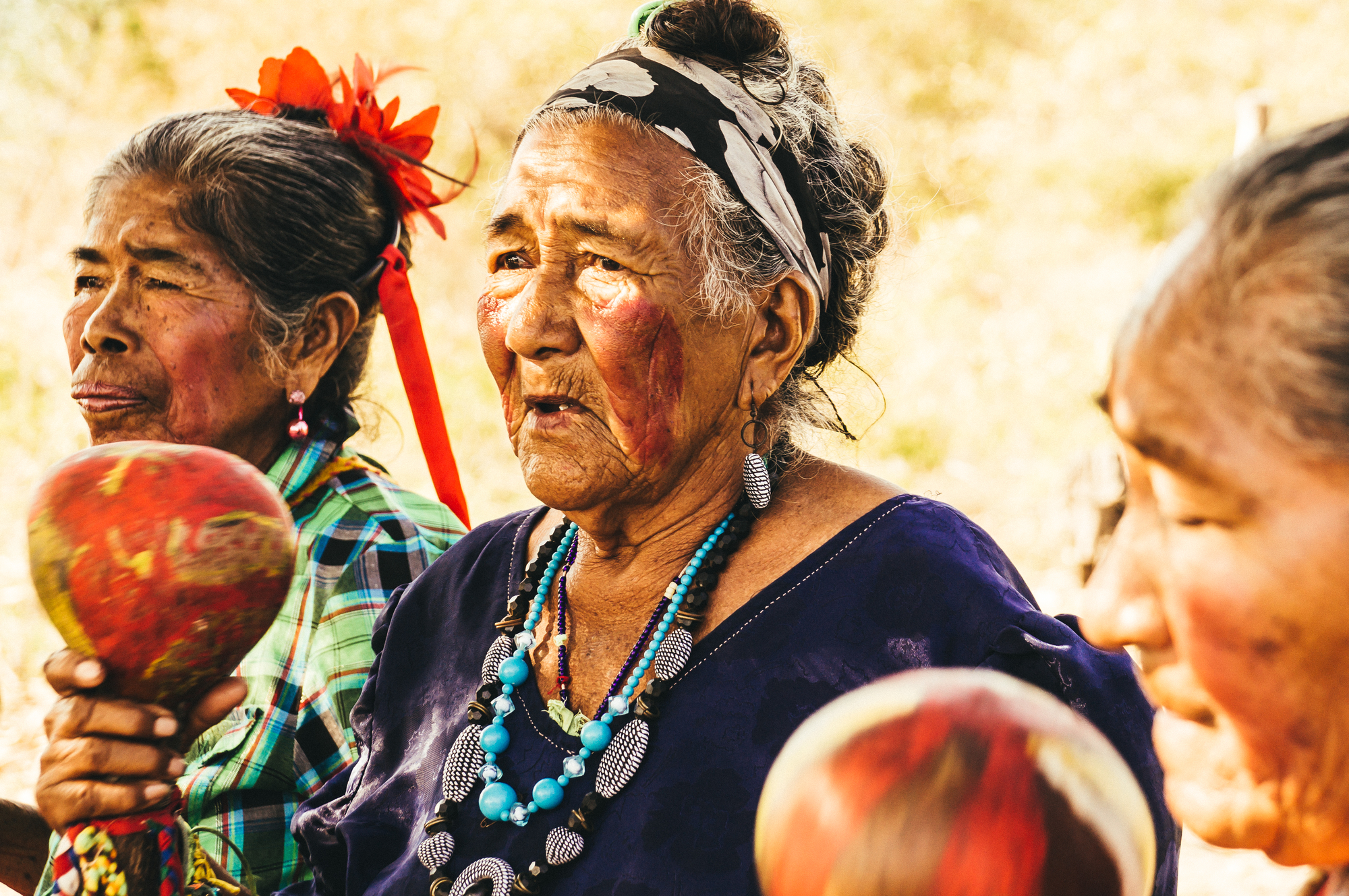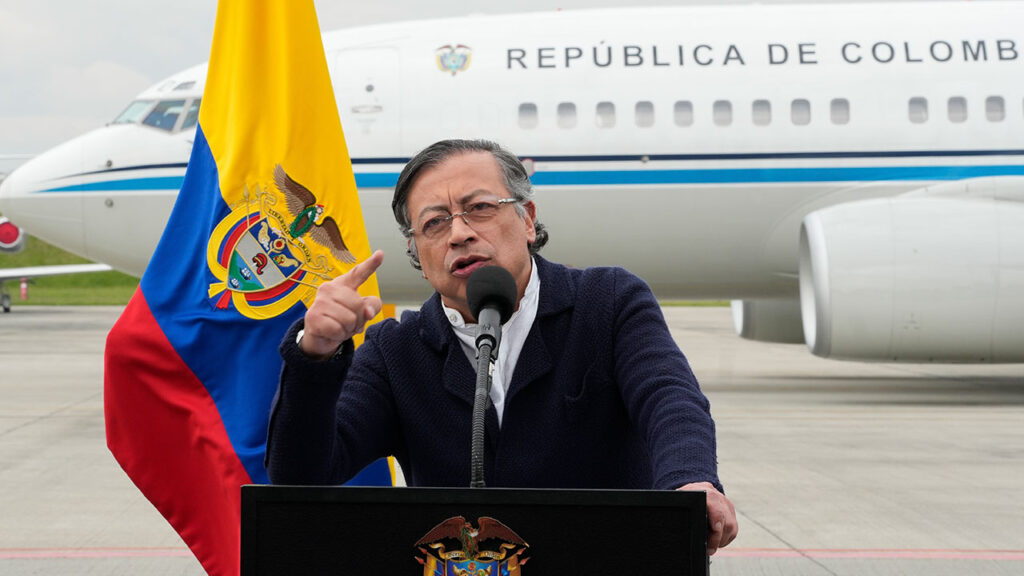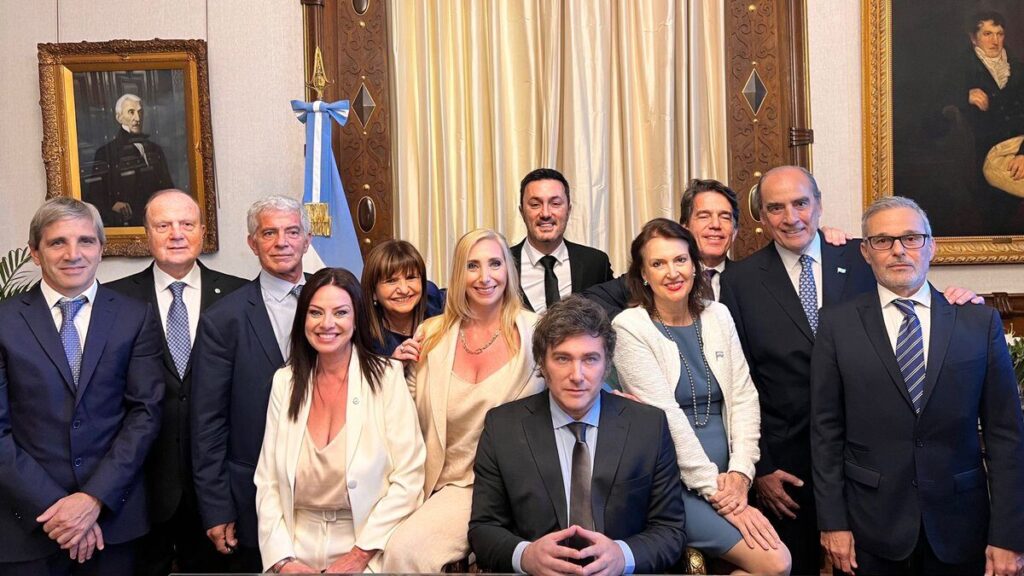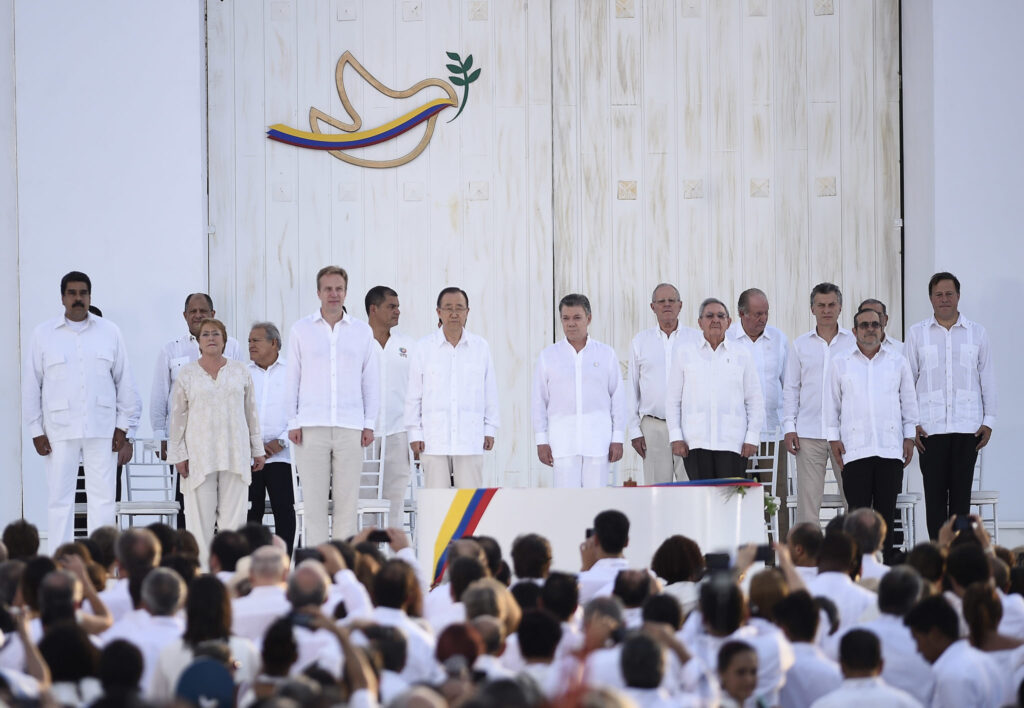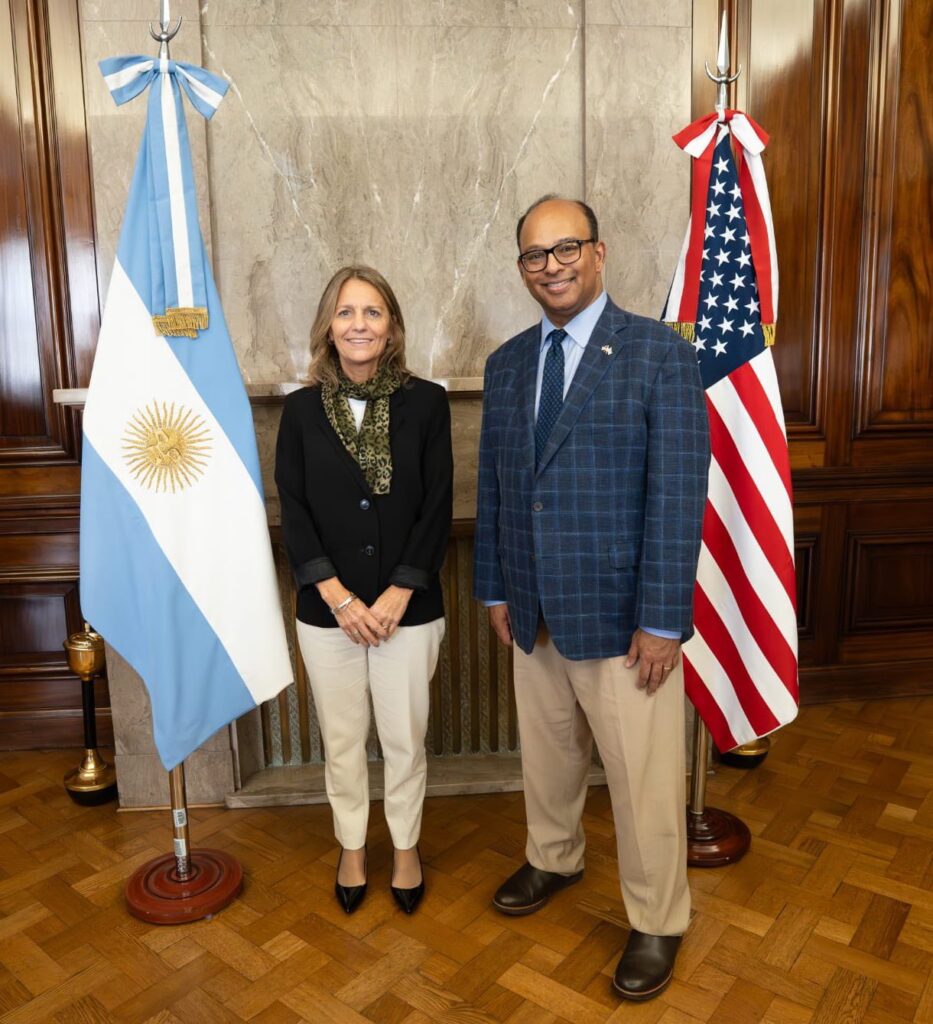This year has been unpredictable when it comes to the rights of marginalized groups in Latin America and those who work to protect them. We take a look back at our coverage of several marginalized groups in the region — women, indigenous peoples and the LGBTQ community — and their fight for equal rights over the course of 2019.
WOMEN
A Latin America Reports interview early in the year with Argentina’s former foreign minister Susanna Malcorra warned of a “setback,” in women’s rights across the region.
Read: Q&A with Argentina’s Former Foreign Minister: The state of women’s rights in Latin America
Since then, our coverage has largely focused around female reproductive rights, given that in Latin America, legal abortion is only permitted in all cases in three countries: Uruguay, Guyana and in some states of Mexico.
Read: Abortion legislation in the spotlight as Argentina presents new law to Congress
This year, Mexico was the only country in Latin America to change its abortion legislation. In October, the state of Oaxaca joined Mexico City state in becoming the country’s second to legalize the procedure up to 12 weeks into pregnancy.
Read: Oaxaca’s legalization of abortion could pave the way for other Mexican states to follow suit
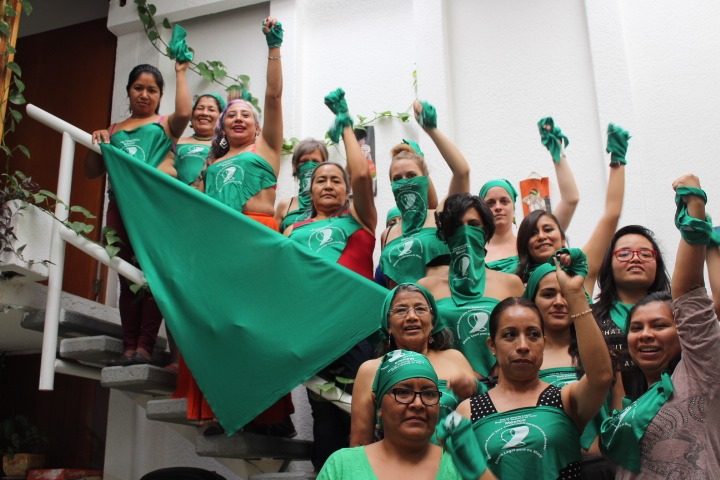
Members of Mexican Women’s Rights NGO Consorcio wear green bandanas in support of free and safe abortions in Mexico and Latin America. Image courtesy of Consorcio Oaxaca.
Elsewhere, the fight for safe and legal abortions has continued to gain momentum as the year progressed. Further south, in Argentina, new president Alberto Fernández has vowed to legalize the procedure under his leadership.
Read: Q&A with “Que Sea Ley” director about Argentina’s fight for legal abortion
In Medellin, Colombia’s first ever gender-focused political movement was elected to the city council in the country’s October local elections. Estamos Listas, which aims to increase female participation in politics alongside countless other objectives, spoke to Latin America Reports.
Read: Medellín’s women-centered political movement is ready for city council
The country’s capital, Bogota, also elected its first ever openly lesbian and female mayor: Claudia Lopez.
Read: Who is Claudia López, Bogota’s first openly gay, female mayor?
We also reported on Latin America’s teenage pregnancy rate, which is higher than the global average, as well as its rate of child marriage, which has not decreased in the last 20 years.
INDIGENOUS COMMUNITIES
2019 was a particularly concerning year for indigenous peoples, given the gravity of forest fires which reached new bounds in the already-threatened Amazon rainforest this summer. The fires, which Brazilian President Jair Bolsonaro blamed on NGOs, put both the wildlife and indigenous communities that inhabit the rainforest at risk.
Read: Brazil’s indigenous people are best positioned to protect the Amazon
As these indigenous groups continue to fight for their land rights, which in most Latin American countries are under threat, their leaders continually find their lives in danger if they speak out.
Read: Indigenous activists killed in Guerrero, Mexico
In Colombia, for example, social leaders are some of the most threatened members of the country’s population. According to a report by the national NGO Indepaz, 777 social leaders were reported to have been killed between the start of the year and the date the study was published in September. Although their lack of protection has been the subject of widespread protests across Colombia, representatives from President Iván Duque’s government insist they are doing enough to protect them.
Read: What is the government’s current commitment to protecting social leaders in Colombia?
More recently, the post-election crisis in Bolivia — which has resulted in the extradition of former president Evo Morales — may also make for another setback in indigenous rights. Current right-wing conservative Interim President Jeanine Áñez referred to indigenous religious practices as “satanic rituals” in 2013.
Read: What could a Morales-free Bolivia mean for its indigenous people?
In Ecuador, indigenous organizations have been empowered through the vital role they played in recent nationwide protests against the country’s president Lenin Moreno and his government’s austerity measures. The Confederation of Indigenous Nationalities in Ecuador (CONAIE) has been instrumental in ensuring the resignation of three of the country’s presidents in total.
Read: Indigenous groups expected to play a key role in Ecuador’s protests
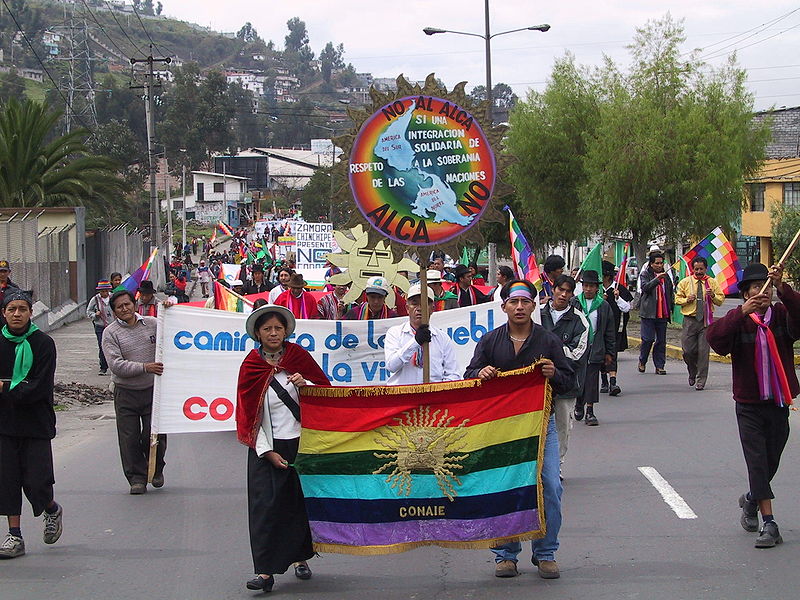
CONAIE indigenous group hold up their flag at a protest against the summit of the Free Trade Area of the Americas in 2002. Photo courtesy of Donovan&Scott, Wikimedia Commons.
LGBTQ
Latin America is one of the world’s most contradictory regions when it comes to LGBTQ rights and common attitudes towards the community, given its conservative, Catholic roots.
Ecuador became Latin America’s sixth country to legalize gay marriage in June this year, joining the likes of Argentina, Brazil, Colombia, Costa Rica and Uruguay. Countries in the rest of the region either only recognize civil unions or constitutionally ban gay marriage altogether.
Read: How progressive is LGBTQ rights legislation in Latin America?
Nevertheless, Latin America remains home to some of the world’s most progressive mindsets with regards to the LGBTQ community. Take countries such as Brazil and Uruguay, for example, where LGBTQ legislation is more advanced than some of the most developed countries worldwide. During this year’s pride month in June, marches to celebrate the rights of LGBTQ communities took place all over Latin America. The Latin America Reports team was on the ground to report at the pride march in Medellin.
In photos: Medellín’s 22nd Pride March
Although in Colombia’s second-largest city the march remained peaceful, pride marchers at a similar parade that took place in Paraguay in October were not so lucky. Pro-life and pro-family groups attacked the marchers, throwing flash grenades and stones at them.
Read: Pride marchers attacked by pro-life groups in Paraguay
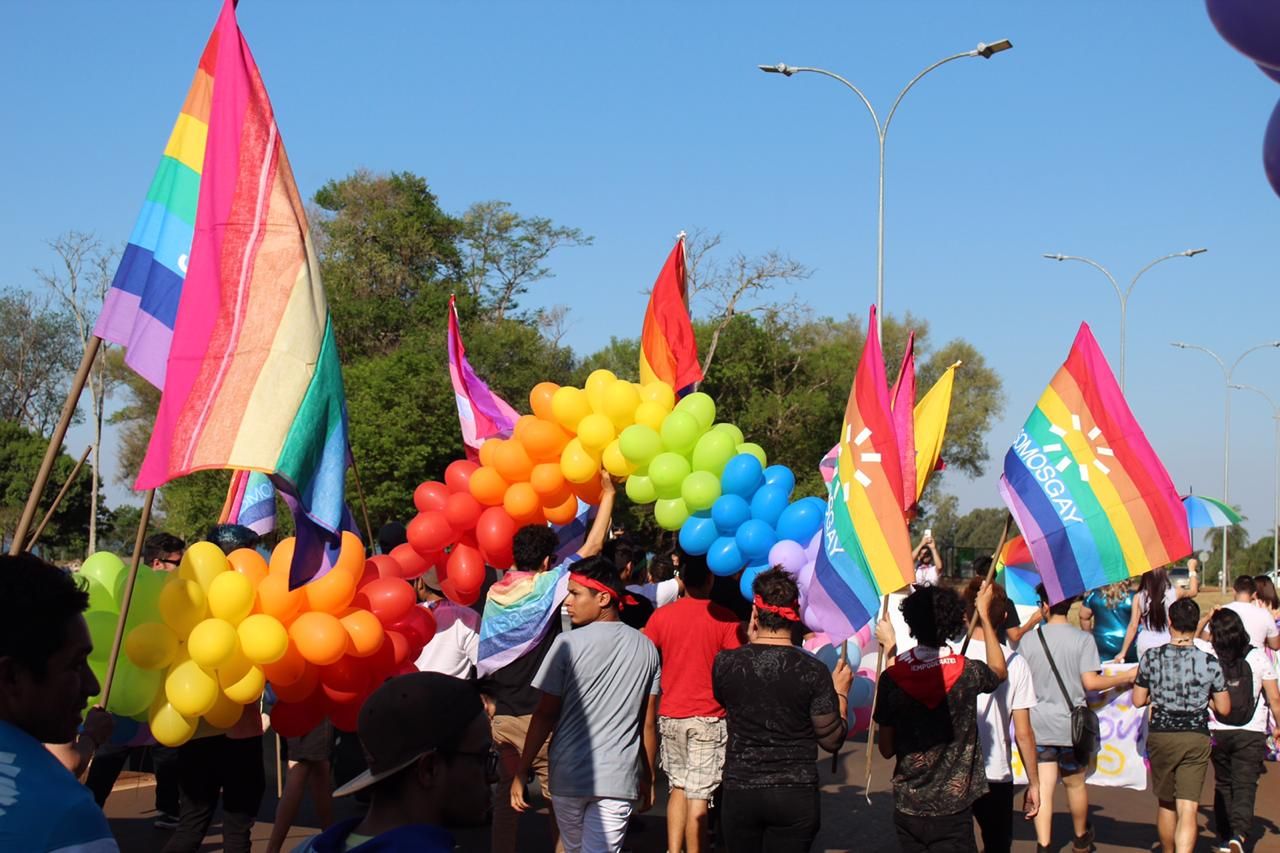
The city of Hernandarias, Paraguay hosted its first ever LGBTQ pride march on Sunday, September 29. Photo courtesy of Leo Cáceres.
Of the three demographics, the rights of Latin America’s indigenous communities remain perhaps the most at risk. Despite some progress being made for female reproductive rights in Mexico, advances in women’s rights have also remained slow in Latin America in 2019. Victories for Colombian women in politics, however, are optimistic achievements to bear in mind for the new year. The same can be said for LGBTQ rights in the region, which remains hostile towards the community in many ways. However, gradual legislative changes around gay marriage in countries such as Ecuador are significant achievements for the community, which must not be overlooked.


